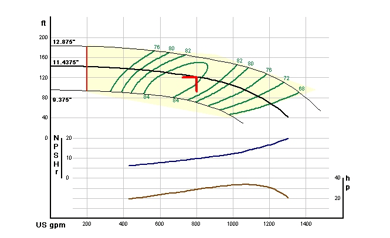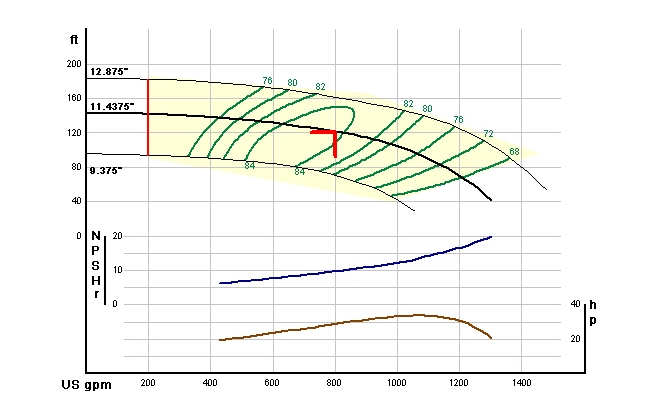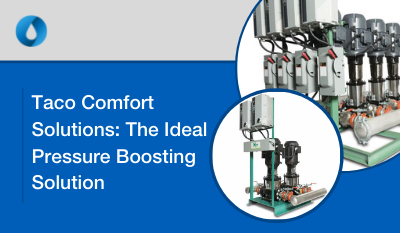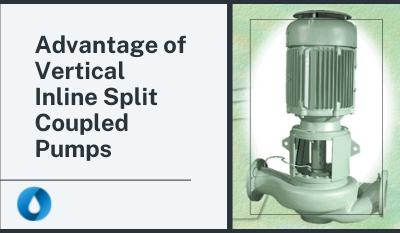Utilizing Variable Frequency Drives (VFDs) for HVAC pump motors is a widely accepted practice due to its energy-saving opportunities. These savings come from balancing the pumps with the VFDs in lieu of throttling valves (that add friction to a system) and from simply modulating water flow based on system demand. Some might argue that all HVAC pumps should be driven by VFDs if for no other reason than allowing the soft-start feature to prolong the life of the equipment (as opposed to starting across-the-line at 100% speed). Did you know there are also efficiency advantages that may be realized within the pump itself?
 If you are familiar with a manufacturer’s pump curve, you have seen the efficiency lines plotted, and have probably used those to help determine the pump selection. The efficiencies shown are derived from manufacturer test data. Note that as your impeller diameter decreases, generally, your efficiency does as well. The reason for this is the widening gap between the impeller’s outer edge and the tongue, or cutwater, that directs water flow out of the pump casing. Basically, the wider the gap, the more internal circulation you may have within the casing, and therefore, the lower the efficiency. However, if you vary the pump speed in lieu of trimming the impeller, the efficiency will more closely hold to the max impeller efficiency as you ride down the operating curve. Joe Evans, Ph.D., has written a great article on this subject.
If you are familiar with a manufacturer’s pump curve, you have seen the efficiency lines plotted, and have probably used those to help determine the pump selection. The efficiencies shown are derived from manufacturer test data. Note that as your impeller diameter decreases, generally, your efficiency does as well. The reason for this is the widening gap between the impeller’s outer edge and the tongue, or cutwater, that directs water flow out of the pump casing. Basically, the wider the gap, the more internal circulation you may have within the casing, and therefore, the lower the efficiency. However, if you vary the pump speed in lieu of trimming the impeller, the efficiency will more closely hold to the max impeller efficiency as you ride down the operating curve. Joe Evans, Ph.D., has written a great article on this subject.
As you read the article, bear in mind it is a very academic point of view. In actuality, the pump efficiency will drop as the speed is reduced, but much less than if the impeller had been trimmed. This drop is attributed to system factors external to the pump while operating at reduced speeds. Still, this does give rise to consideration of whether or not to trim the pump impeller at all when using a VFD.
Blog image courtesy http://www.jensenengineeredsystems.com/pump-curves/




.png)




Submit a Comment